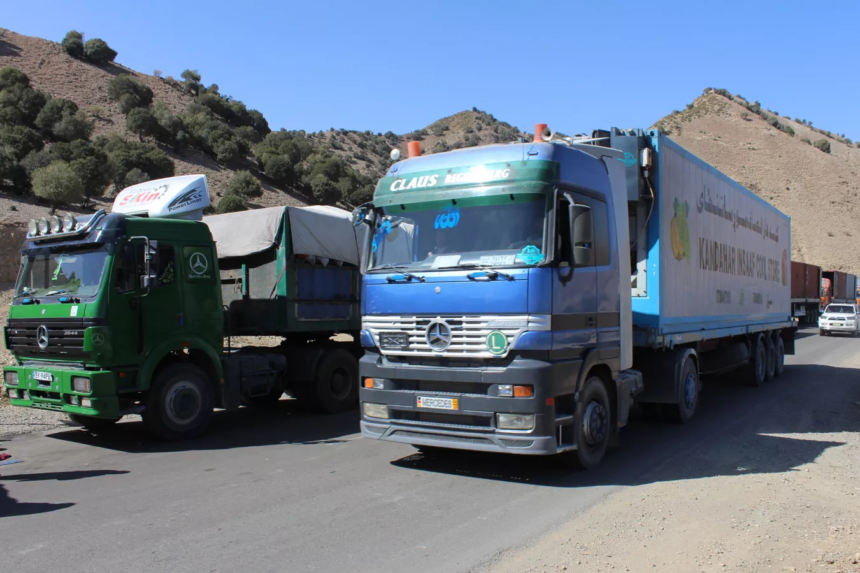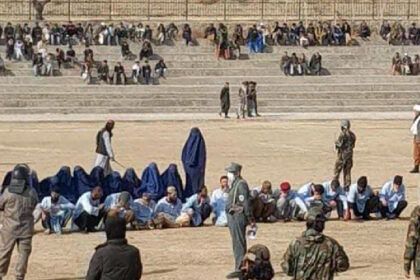RASC News Agency: A wave of frustration and fury swept through Herat’s industrial district on Wednesday, as dozens of freight truck drivers staged a defiant protest against the Taliban regime’s deep-rooted corruption and discriminatory practices in the Ministry of Transport. Draped in symbolic white burial shrouds a powerful gesture of desperation and resistance the protesting drivers condemned the arbitrary and exploitative permit system controlled by Taliban-appointed officials. The demonstration targeted the Taliban’s so-called “turn-taking commission,” responsible for allocating freight permits. Protesters revealed that, under this opaque and corrupt system, select trucking companies with ties to Taliban commanders or those willing to pay bribes are granted immediate authorization to operate, while independent drivers or those without connections languish in bureaucratic limbo for weeks or months.
“This is not governance it’s outright extortion under the banner of authority,” said one driver, who had been waiting for over a month to receive a loading permit. “The Taliban have turned a public transportation system into a tool of oppression, patronage, and profit.” According to several drivers, the favoritism shown to well-connected logistics companies is both blatant and widespread. Taliban authorities allegedly allow certain firms to bypass the formal queue entirely, enabling them to monopolize transport contracts and secure repeated shipments, while smaller operators are sidelined crippling competition and leaving many families without an income.
This protest is far from isolated. Over the past year, freight drivers across Afghanistan have consistently raised alarms over harassment, arbitrary detention, and widespread financial exploitation by Taliban forces. Along the Herat–Faryab highway, drivers report that Taliban checkpoints routinely demand illicit tolls of up to 5,000 kabuli rupees per vehicle money collected without receipts, accountability, or any official explanation. Despite repeated outcries, Taliban officials have failed to offer any transparency on how these funds are used or whether they are documented within any formal budget. Most observers believe the money simply enriches local commanders and finances the group’s internal networks of power and control.
The protest also recalled a similar uprising on August 30 of the previous year, when drivers took to the streets to oppose arbitrary fees and violent mistreatment at the hands of Taliban road agents. That protest ended in bloodshed, with at least one driver seriously injured during a Taliban crackdown. Since then, little has changed. The Taliban’s so-called “governance” has only deepened its authoritarian grip over public institutions, turning ministries and state departments into mechanisms of repression. Analysts argue that the Ministry of Transport, like many other sectors under Taliban rule, now functions less as a public service and more as an extortion racket feeding the financial machinery of a regime that thrives on coercion, fear, and control.
“The Taliban have weaponized bureaucracy,” said a former Afghanistani civil servant now living in exile. “They are using state structures not to serve the people, but to dominate and extract from them.” Despite the risk of retaliation, drivers in Herat vowed to continue their protest until their demands for fairness and transparency are met. They called on international human rights organizations and media outlets to shine a spotlight on the Taliban’s systemic abuse and the economic stranglehold imposed on Afghanistan’s working class. Yet with no functioning judiciary, no independent media inside the country, and no space for civil society under Taliban rule, their plea risks falling on deaf ears another chapter in the Taliban’s broader campaign to silence dissent and consolidate absolute control.






